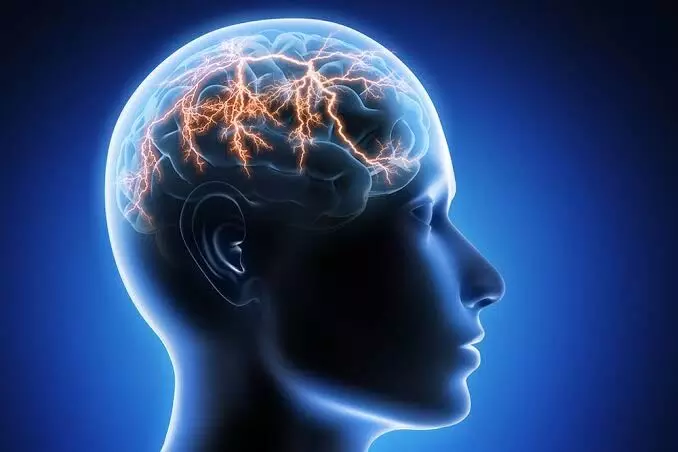Doctor speaks: How to navigate epilepsy to lead a normal life
Epilepsy is a neurological disorder that disrupts nerve cell activity in the brain yet a normal life can be led with therapy and medicines, explains Dr Sita Jayalakshmi
By Anoushka Caroline Williams
Health: Epilepsy is a neurological disorder yet normal life can be led with therapy and medicines explain doctors
Hyderabad: Epilepsy is a neurological disorder that disrupts nerve cell activity in the brain, leading to seizures, unusual behavior, sensations, and sometimes loss of consciousness.
Dr. Sita Jayalakshmi, Consultant Senior Neurologist and Epilepsy Specialist at KIMS Hospitals, Secunderabad, explains, “Epilepsy is a treatable brain disease. It can develop at any age but is most commonly diagnosed before 20 and after 60.”
A single seizure does not confirm epilepsy. “At least two unprovoked seizures are required for an epilepsy diagnosis,” she adds. While treatment can control seizures in about 80% of cases, some children may outgrow the condition with age.
Causes and Risk Factors
Epilepsy can have several causes, including:
• Perinatal brain injury, infections, traumatic brain injury, and stroke – These are preventable factors.
• Genetic influence, brain tumors, and developmental disorders – These may also contribute to epilepsy.
• Unknown causes – Around 30% of epilepsy cases have no identifiable cause.
Certain factors increase the risk of epilepsy:
• Age: It is more common in early childhood and after 60.
• Family history: A genetic predisposition may raise the risk.
• Head injuries: These can contribute to epilepsy, making helmet use and seat belts important for prevention.
• Stroke and vascular diseases: Managing diet, avoiding smoking, and exercising can reduce the risk.
• Seizures in childhood: While high fever-related seizures are common, they usually do not lead to epilepsy unless prolonged or associated with neurological conditions.
Seizure Triggers and Symptoms
Common seizure triggers include flickering lights, lack of sleep, stress, excitement, missed meals, high temperatures, menstrual cycles, and missed medication.
Symptoms of epilepsy include:
• Temporary confusion
• Staring spells
• Uncontrollable jerking movements
• Loss of consciousness or awareness
• Psychological symptoms
When to Seek Medical Help
Dr. Jayalakshmi advises seeing a doctor if a seizure lasts more than five minutes if breathing or consciousness does not return, if a second seizure follows immediately, or if a person is pregnant or injured during a seizure. “If you experience a seizure for the first time, seek medical advice,” she adds.
Complications Associated with Epilepsy
Seizures can lead to dangerous situations, including:
• Falls: Increased risk of head injuries and fractures.
• Drowning: The risk is 15 to 19 times higher for people with epilepsy.
• Car accidents: Loss of awareness during a seizure can be dangerous while driving.
• Mental health issues: Epilepsy is linked to higher rates of depression and anxiety.
Diagnosis and Treatment
Dr. Jayalakshmi explains that epilepsy is diagnosed through a description of events, mobile-recorded videos of seizures, EEG tests, and brain MRI scans.
Medication and Lifestyle Adjustments:
“Most people with epilepsy can become seizure-free with anti-seizure medication,” she says. More than half of those who remain symptom-free for two or more years may no longer need medication. However, patients should:
• Take medication as prescribed.
• Avoid stopping medication without consulting a doctor.
• Report mood changes or signs of depression.
Surgical Options:
“Surgery can help around 30% of people with epilepsy whose seizures are not well controlled with medication,” Dr. Jayalakshmi notes. The procedure involves removing the affected brain area while preserving normal functions. “Vagus nerve stimulation is another treatment option that reduces seizure frequency and severity,” she adds.
Epilepsy and Pregnancy
Seizures during pregnancy can pose risks for both mother and child. “Most women with epilepsy can have a healthy pregnancy, but careful monitoring and medication adjustments are necessary,” Dr. Jayalakshmi advises.
Do’s and Don’ts During a Seizure
Do:
• Stay calm.
• Move the person if they are in danger.
• Protect their head.
• Loosen tight clothing and remove glasses.
• Place them in the recovery position after the seizure.
• Reassure them after regaining consciousness.
Don’t:
• Panic.
• Insert objects into their mouth.
• Restrict movements, as they may cause fractures.
• Give water or food until they are fully conscious.
Understanding epilepsy, recognizing symptoms, and following proper treatment can help those affected lead safer and healthier lives.